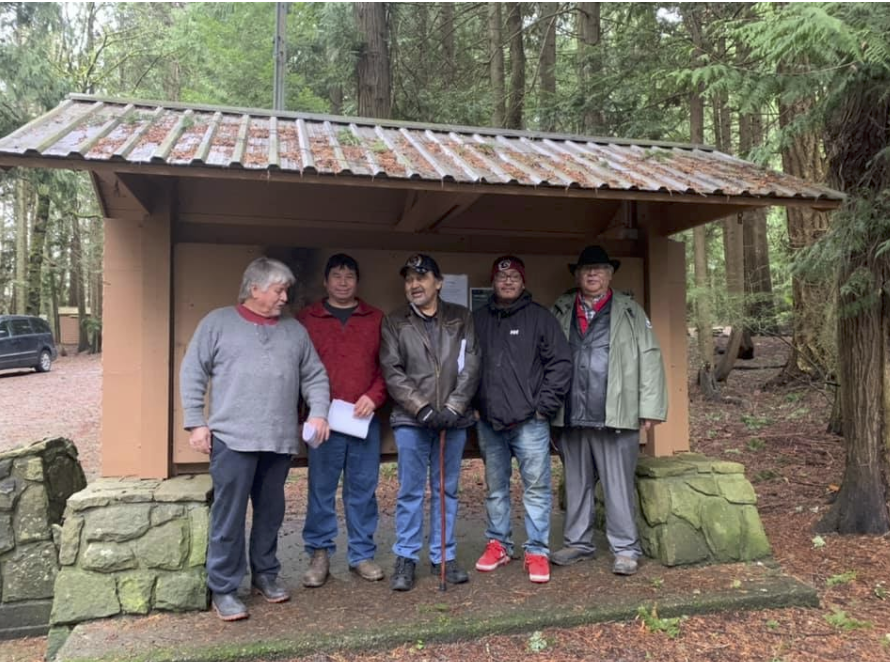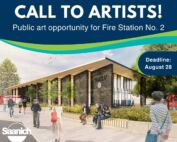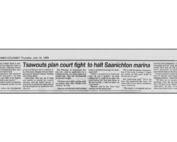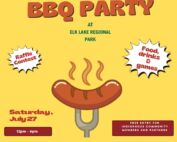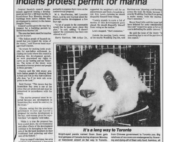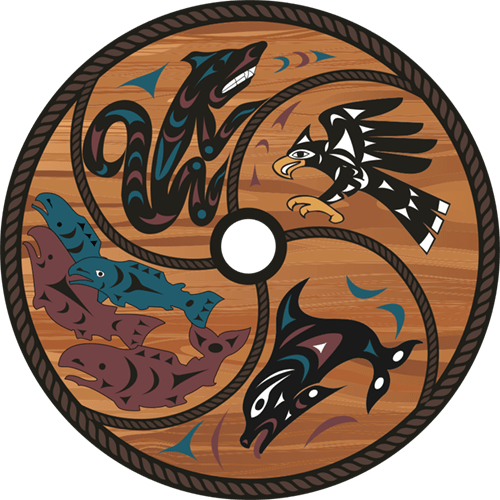The W̱SÁNEĆ Leadership Council proudly announces they have an agreement to rename another park.
Shown above – this Kiosk in McDonald Park will be removed and replaced with W̱SÁNEĆ art and SENĆOŦEN History.
In alignment with the W̱SÁNEĆ Leadership Council’s mandate to promote and enhance recognition for W̱SÁNEĆ culture, the WLC has been working to reinstate W̱SÁNEĆ language and culture across the territory.
McDonald Park is located on the Northern outskirts of Sidney, BC in the Gulf Islands National Park Reserve. The 20 hectares of forested parkland has particular historical and cultural significance for the W̱SÁNEĆ people.
McDonald Park contains the former site of one of the original W̱SÁNEĆ villages, called W̱SÍIKEM. Eric Pelkey explains,
“The name SMONEĆTEN means place of pitch. That’s where our people used to gather pitch when it ran from the Douglas Firs. The Douglas Firs are the largest producer of pitch which was a prized commodity for its many uses. Pitch was used in fire starting, patching open wounds as well as for sealing the canoes of our people.”
According to the Saltwater People, an oral history told by Dave Elliott Sr., pitch was also gathered at the Eastern Point of South Pender Island.
“When the colonial government forcibly took the land they relocated the W̱SÁNEĆ people that lived there to reserves; mostly the Tseycum and Tsartlip but also Lummi. It’s a pretty big win to get it renamed and the history recognized.” Pelkey shares.
Renaming McDonald Park involves reinstating W̱SÁNEĆ language, history and culture by installing various information kiosks throughout the park. As such, the project requires the expertise of many community members from several groups. The W̱SÁNEĆ Arts Council, the Environmental Group and Language group are all involved. The Arts Council is working on carving the poles for the kiosks and creating the artwork describing the stories of the great flood, as well as the native plants in the area. The environmental group and language groups are working together to create the signage in SENĆOŦEN and English, to describe the names, meanings and medicinal uses of the plants.
“We were pretty happy when Parks Canada agreed to the renaming. It was part of our negotiations to bring back the traditional names,” says Pelkey.
The renaming ceremony was originally planned for August 2020, but due to complications from the COVID-19 pandemic, it has been delayed until the Spring of 2021.
“There is going to be quite a big ceremony. It’s a big project, we’ve been working on it for about a year.”
McDonald Park is just one of the many places the WLC has been working to reinstate WSANEC history, culture and language. Last year the WLC celebrated the renaming of ȽÁU,WELṈEW̱/John Dean Park as well as another win on Mayne Island. This year the Council is looking at Sidney Spit as the next project to rename.
Pelkey tells us,
“We previously had a village there, which is also significant for the history of our people. The site was one of the most productive crabbing areas, a place for deer hunting as well as a place our people used to go out to gather medicines.”
In addition to renaming efforts, the WLC’s environmental committee is working with Parks Canada to remove the invasive plants that are growing in the parks all around the Gulf Islands.
RECENT POSTS
How are we doing?
McDonald Park is just one of the many places the WLC has been working to reinstate WSANEC history, culture and language. Last year the WLC celebrated the renaming of ȽÁU,WELṈEW̱/John Dean Park as well as another win on Mayne Island. This year the Council is looking at Sidney Spit as the next project to rename.


